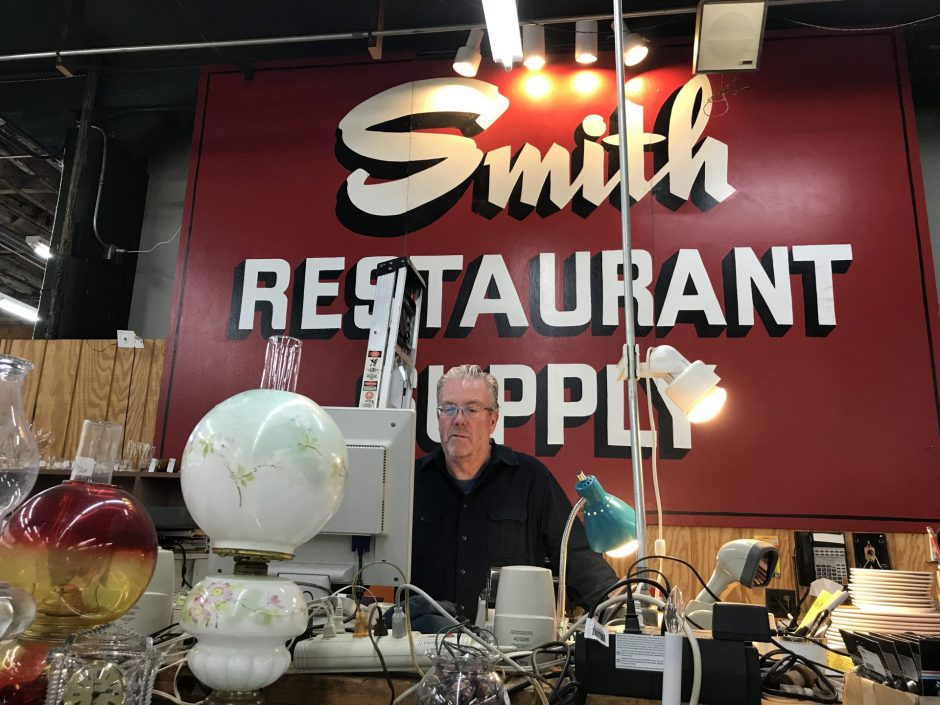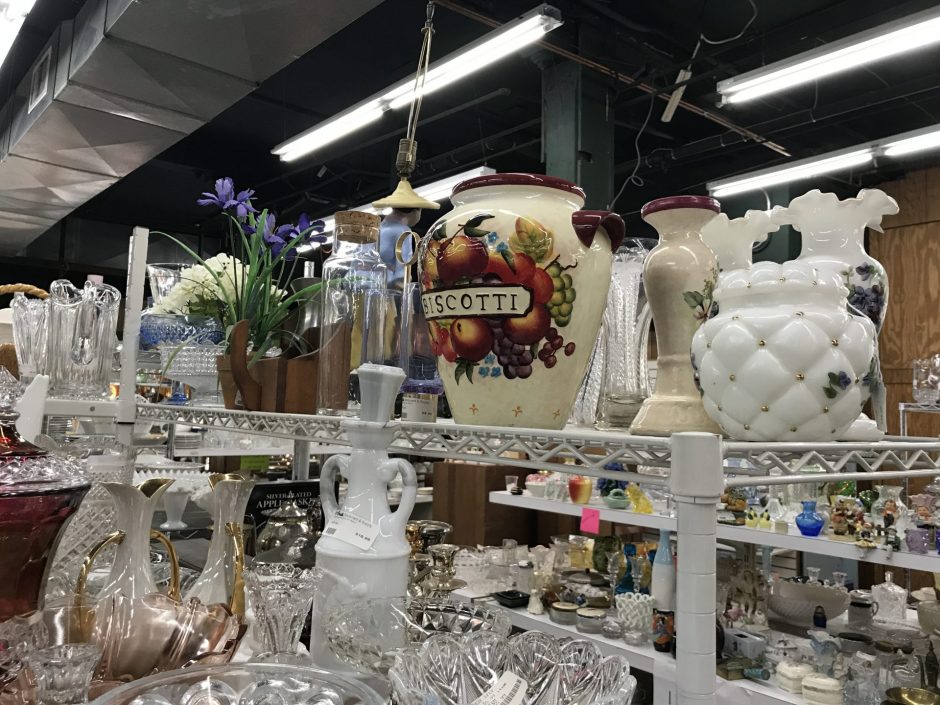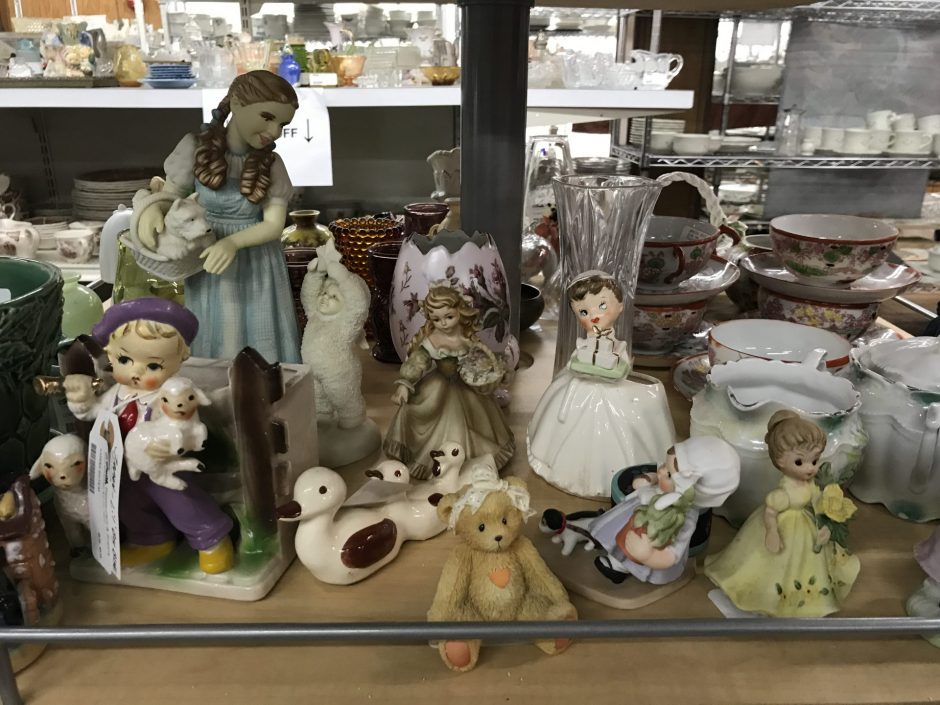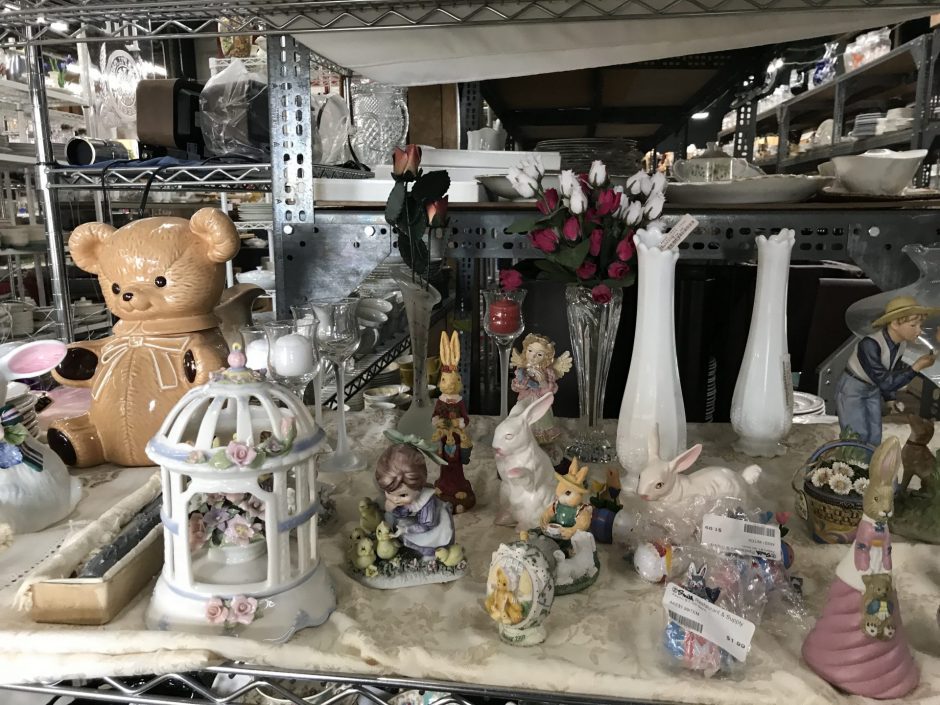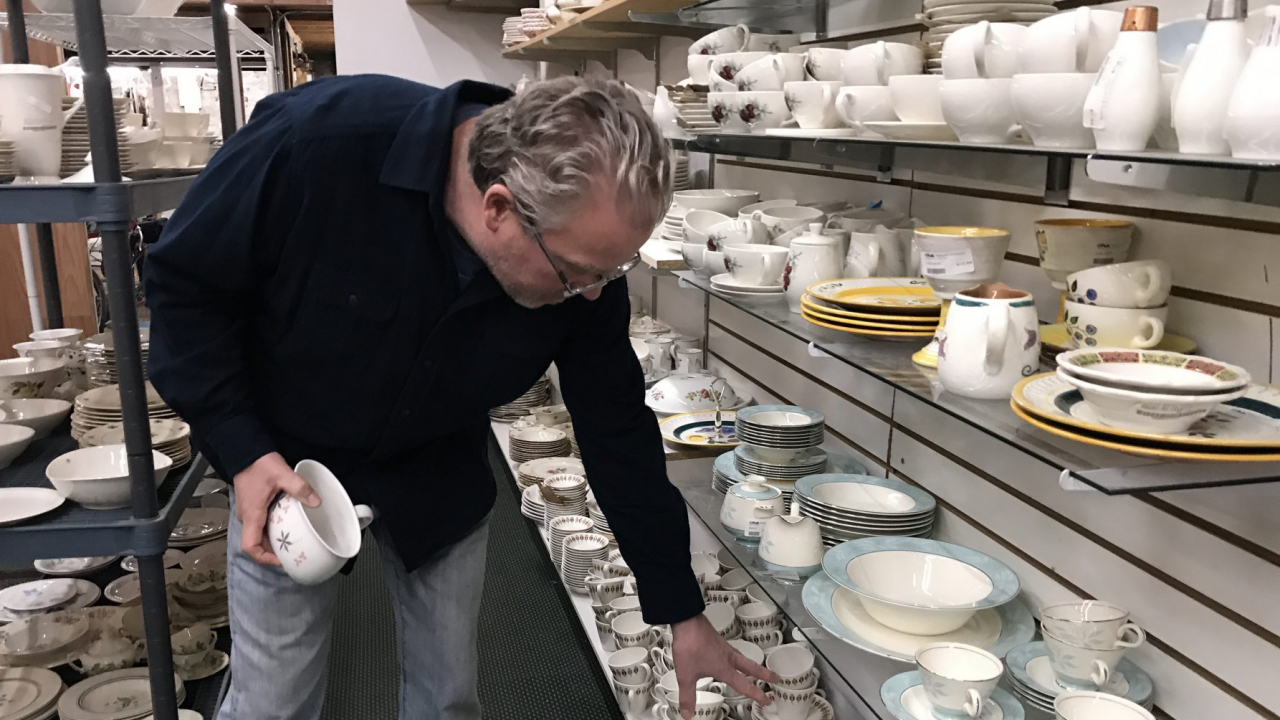
By Jiaqi Huang SYRACUSE, N.Y. (NCC News) ——One of Onondaga county’s oldest family-run business is nearing its end in a modern retail environment. The Smith Housewares and Restaurant Supply company by the Erie Canal is 122 years old, but its owner John Kuppermann said he would not take over the six-generation pottery business if he had predicted what has happened to the retailing back to 80s.
The 1840’s Erie Canal building in the center of downtown Syracuse has two floors of public showrooms and six floors of warehouses. Kuppermann said he will leave the company’s building by the end of this year.
“I’m the end of the line eventually for the business as far as family,” Kuppermann said.“Somebody else sells it, take over at some point, but young people wouldn’t go into retail as a career.”
Kuppermann started working at the pottery store when he was 12. He said he does enjoy his job although the business suffered and struggled over time.
“My son is an archaeologist for the federal government in Illinois and my daughter is studying Animal Behavioral Science in England,” Kuppermann said. “We had that conversation back in high school and they both worked here in summers and during school. They enjoyed it. But the future of retailing is so bad, we completely understand.”
Donald Dutkowsky, a professor of economics at Maxwell school at Syracuse University, has witnessed Smith’s business for decades. He said it’s difficult for a retail store to survive in the age of the Internet and Amazon.
“The Syracuse economy is a lot smaller than it used to be,” Dutkowsky said. “Plus greater competition from large-scale sources like BJ’s and Sam’s club. Retailing environment is being tough here.”
Kuppermann opened Hyman Smith coffee store next to the Smith’s building to help get over a recession in retailing. He said he has brewed Arabica coffee beans for 30 years and he has people that have bought his product for 30 years. Kuppermann said he sells around 500 pounds of coffee beans a week in autumn.
“This business doesn’t resemble in any ways like it was 20 years ago, I’m constantly trying to adapt to current circumstances,” Kuppermann said. “If you just got to stagnate and it’ll go away, you have to be flexible and mindful to take care of it.”
Smith’s collection of pottery also attracts professional ceramists like Peter Beasecker who has been teaching ceramics at the College of Visual and Performing Arts at Syracuse University for a decade. Beasecker said he used Smith’s pottery as an inspiration to see what was new in the field.
“What sort of objects they were selling told me about what sort of objects were being used in restaurants, and that was something that I can always bring to my students in the classroom,” Beasecker said.
Seventy-five to 80 percent of pottery Kuppermann sells is imported from China, but an eight-percent tariff has passed along to people who buy Chinese imports since the trade war between America and China started last September. Professor Dutkowsky said an eight-percent of tax sales is still affordable for most people who buy pottery.
“It seems like for now, that hasn’t affected consumer demand for the pottery they are selling,” Dutkowsky said. “If they get big enough to 25 percent, the tariffs can be sizeable, they can really hurt the budget.”
A lot of stories are lost to time, but Kuppermann was told his family business took shape in the 1800s when his great great grandfather immigrated from South Poland and began selling pottery with a horse and a wagon. Though Smith’s store will leave Syracuse’s pottery market soon, Kuppermann said a continuing demand for ceramic dinnerware exists across the country.
Professor Beasecker believes Syracuse is always a well-developed ceramic fine art center in the United States. “The Everson Museum was the first museum that collected American-made pottery,” he said, “both fine art pottery as well as everyday pottery.”

